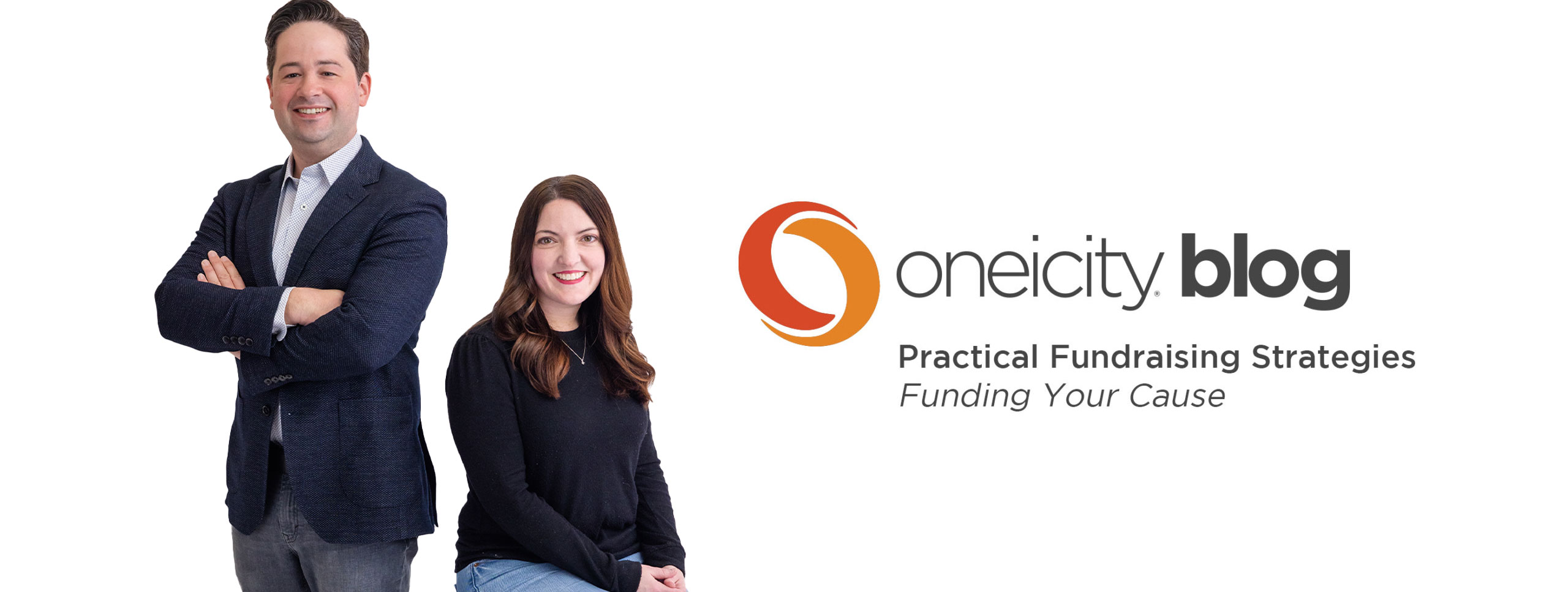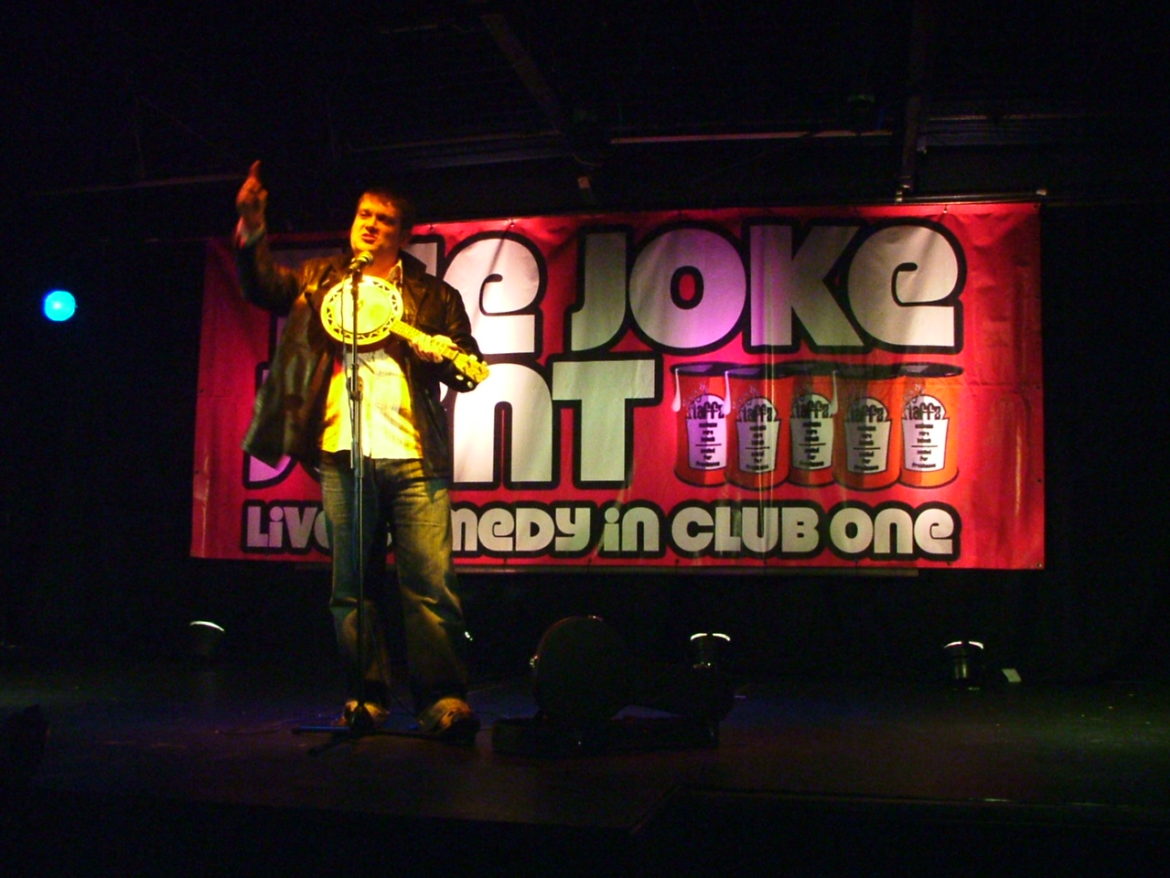Good stand-up comedians have 3 key skills you need to remember to improve your next fundraising event. You wouldn’t think that a comedian could teach you about event fundraising, but they can. And I’m not talking about improving your jokes, although some of you could use some help.
Hoots and I had the pleasure of attending a fundraising event for a great cause last weekend. It was a “Comedy Night.” We knew one of the comedians, we love the cause and so we ponied up for a table. It was a great night.
We laughed and laughed.
And as I was laughing, I realized that I was watching 3 key strategies you need to incorporate in your next fundraising event:
#1 Take The Pause. I was struck by how much of the comedy depended on the comedian taking time to deliver the punch line . . . not rushing it.
And then.
Waiting.
These guys would wait for the moment to settle. Sometimes the pauses were surprisingly long. They just stood there and enjoyed it with us. It was interesting how in that long pause the laughter built as more of us “got it” and we enjoyed hearing others getting it. The funniest jokes had pauses and tempo changes that allowed the meaning to hit us. And allowed us to “get it.”
One of the biggest mistakes I’ve seen in event fundraising is rushing. Whoever is making the ask has to allow time for everyone to get the materials out. We have to have time to settle into the moment. We have to orient to whatever card or form you want us to fill out. We have to find the brochure under our coffee cup. It’s OK to take a little time. This is the moment the whole night has been designed for. You need to let it develop. Please don’t make a “checkbook” joke or apologize. Just guide us through it. Don’t talk down to us. Don’t make us feel stupid because we can’t find the pen. Be calm at the mic. Which takes us to the next takeaway.
#2 Own The Stage. The guys that were up there owned the stage. They didn’t pace around they didn’t do anything artificial to command attention. They were comfortable with the mic and comfortable with the audience.
At one point during the first comedian’s act part of the portable stage moved and opened a 3 inch gap running right down the middle of the stage. It ran practically between his feet. He wasn’t flustered or bothered. He kept going although the mic cord even fell down in the gap. I was waiting for it to snag and jerk the mic out of his hand. Never happened. He was smooth and comfortable. The next two comedians worked around the San Andreas fault line without a hitch. No reason for drama. No reason to get sidetracked.
Same for your event. What will you do if the PowerPoint doesn’t work? What’s the backup for your remote deciding to take a nap at that moment? Plan for and imagine disaster. Have fallback plans for your contingency plans. Take the time to get your scripts ready and take time to view the stage and room. Know what the lights will be like. Know how long the mic cord is (and is the stage one piece or modular?). If you take the time to own the stage and the room, you and everyone on stage with you will do better. And once you own the stage you can think about the audience.
#3 Know Your Audience. Duh. Right? But there’s a huge difference in knowing names and KNOWING your audience.
The comedians on stage the other night play in clubs all over the country. I know that at times they might use other words besides “poop” in their club acts (just guessing). But for this group of mostly church people, they were spot on and were never off-color or off-key. Clearly they’d been prepped (and I’m guessing reminded and re-prepped) just to be sure there wasn’t a slip up.
For you, I’m sure this isn’t about slipping and using an inappropriate word (there’s a bad dream for you). I think the risk for you is forgetting why your audience is there. Did your crowd come to give or to learn? Are they at the event because they love the cause? Or love your organization? Or love the person who invited them? Your ASK has to be different depending on who’s in your crowd. You will probably have all three types of people. What to do? Talk to them all. Before you start writing your speech, build a list of who might be there in terms of their connection or affiliation. Then make sure you can talk to each in ways they’ll appreciate and understand. Don’t talk down to them. And have an “ask” that’s appropriate for each audience:
Supporters: the clear request to help (a development message).
Cause-driven: a clear message of how their love of the Cause connects with your work.
Friends of Supporters: a strong appeal for them to “lean in” and allow you to connect and communicate with them in the future. (You’ll follow up with warm, generous words affirming them).
Message so each one can hear what is the appropriate ask for them.
Oh, and one more thing: #4 make it social. One of the “misses” from Comedy Night was the social media element— there wasn’t one. At our table of 6 there were 6 smart phones on the table during the night. My buddy was on Instagram for a bit during a dull section of the “ask.” The kids were texting constantly (that’s what happens when they are awake). Our table was typical. Rather than lament the ubiquity of smart phones in these moments, USE IT. (We’ve talked about social media for events before). It was a perfect opportunity to connect us socially to the cause and to even the comedians.
So that’s what I thought about while enjoying Comedy Night. What do you think about my lessons? Any lessons from comedians you’ve seen? I love hearing what you think about event fundraising.
![]()
Steve Thomas
Partner, Oneicity
(photo credit: a_mason)

